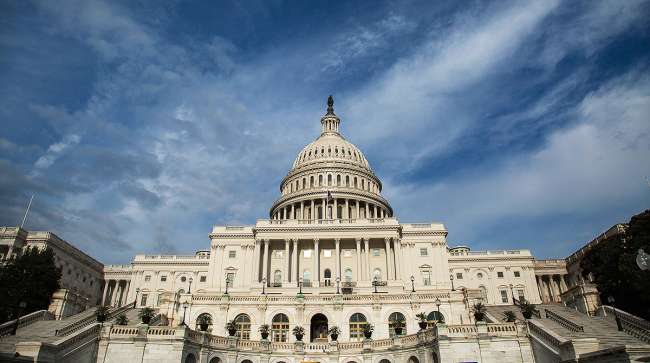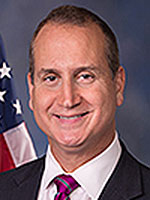Senior Reporter
Congress Clears Fiscal 2019 Spending Bill for Trump’s Signature

Legislation that would ensure funding for several federal agencies in fiscal 2019, which begins Oct. 1, and keep funding flowing through early December for the rest of the government cleared the U.S. House on Sept. 26. (Sept. 28 update: Trump signs bill into law.)
The bill would primarily fund Department of Defense, Labor, Health and Human Services and Education. Other departments, such as Transportation, would operate under a continuing funding resolution good through Dec. 7.
Republican leaders scheduled the vote on the measure primarily to avoid a shutdown of government agencies. The bill cleared by a vote of 361-61.
House Speaker Paul Ryan (R-Wis.) on Sept. 26 had emphasized that President Donald Trump would sign the funding bill into law and avoid a partial government shutdown.
“I’m confident he will sign it,” Ryan told reporters on Capitol Hill. “[The bill] does a lot of the things that we all want to accomplish together. And we’ve had very good conversations with the president.”
Trump has insisted the fiscal 2019 measure include funds for a wall or barrier along the Mexican border. Earlier this month, he took to social media to criticize the process: “Where is the money for border security and the wall in this ridiculous spending bill, and where will it come from after the midterms?”
I want to know, where is the money for Border Security and the WALL in this ridiculous Spending Bill, and where will it come from after the Midterms? Dems are obstructing Law Enforcement and Border Security. REPUBLICANS MUST FINALLY GET TOUGH! — Donald J. Trump (@realDonaldTrump) September 20, 2018
The top funding leader in the House, Rep. Rodney Frelinghuysen (R-N.J.), meanwhile, stressed the bill’s short-term funding fix is meant to keep the federal government open and operational “until all 12 appropriations bills can be signed into law.” Lawmakers are headed back to their districts for their re-election campaigns immediately after the chambers recess this fall.
“This will avoid the threat of any shutdown, and allow for time for work on the remaining funding bills to be completed,” he added.
Frelinghuysen, and his Senate counterpart, Appropriations Chairman Richard Shelby (R-Ala.), had led negotiations on the four-bill package that includes transportation programs. Shelby indicated a few weeks ago: “We are very close to an agreement.”
Aides familiar with the funding negotiations told Transport Topics the transportation bill will likely be wrapped up after the November midterm elections.
Included in the transportation legislation each chamber crafted is a provision that would deny funding for the electronic logging device (ELD) mandate for certain livestock haulers. The Senate approved its version, while the House has not.
A short-term funding law enacted in the spring directed the Federal Motor Carrier Safety Administration not to enforce the ELD rule for agriculture-related transportation through Sept. 30.

Diaz-Balart
The ELD mandate requires carriers to equip trucks with the devices to track drivers’ hours of service. It took effect in December 2017.
At a meeting of House and Senate appropriation leaders on Sept. 13, transportation funding leader Rep. Mario Diaz-Balart (R-Fla.) reiterated his support for the ELD provision in the measure. Maine Republican Sen. Susan Collins, counterpart to Diaz-Balart, also expressed confidence in her colleagues being able to finish the four-bill package prior to Sept. 30. and avoid a short-term funding fix for transportation programs.
“We can’t come this far and not achieve the goal,” Collins said.
Despite the impetus to conclude the fiscal 2019 funding process in the Senate, a debate on the nomination of Brett Kavanaugh to be an associate justice of the U.S. Supreme Court has consumed senators’ attention for most of September.

